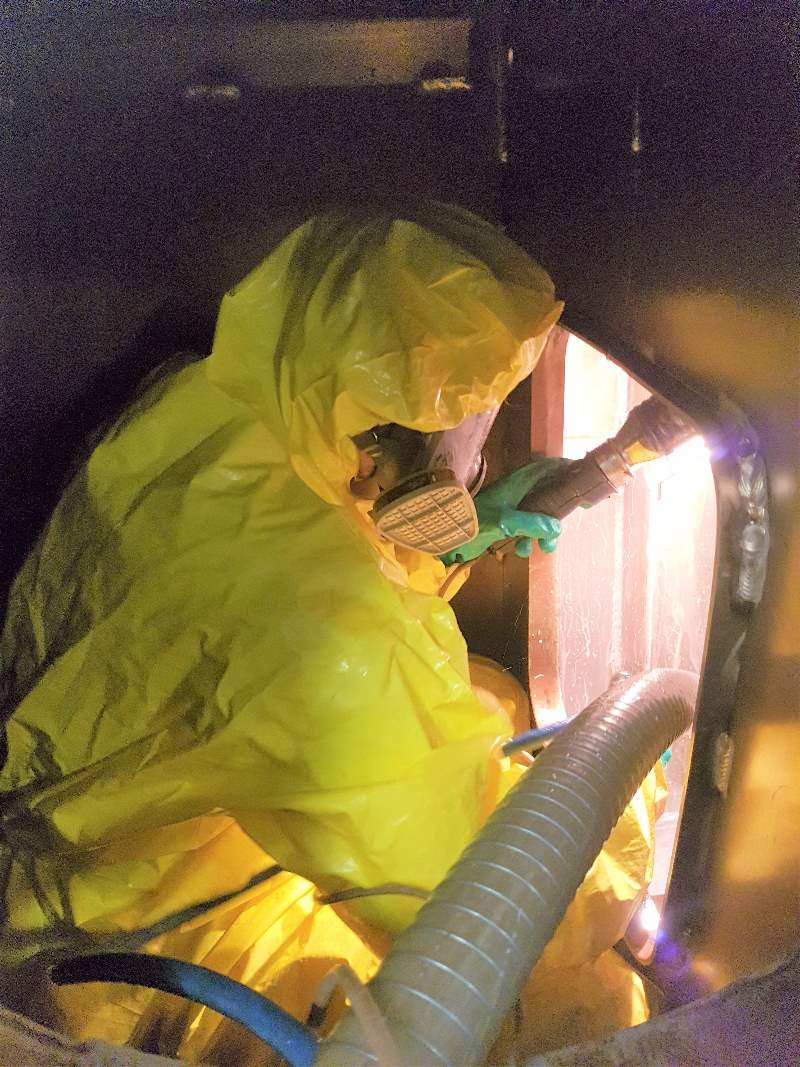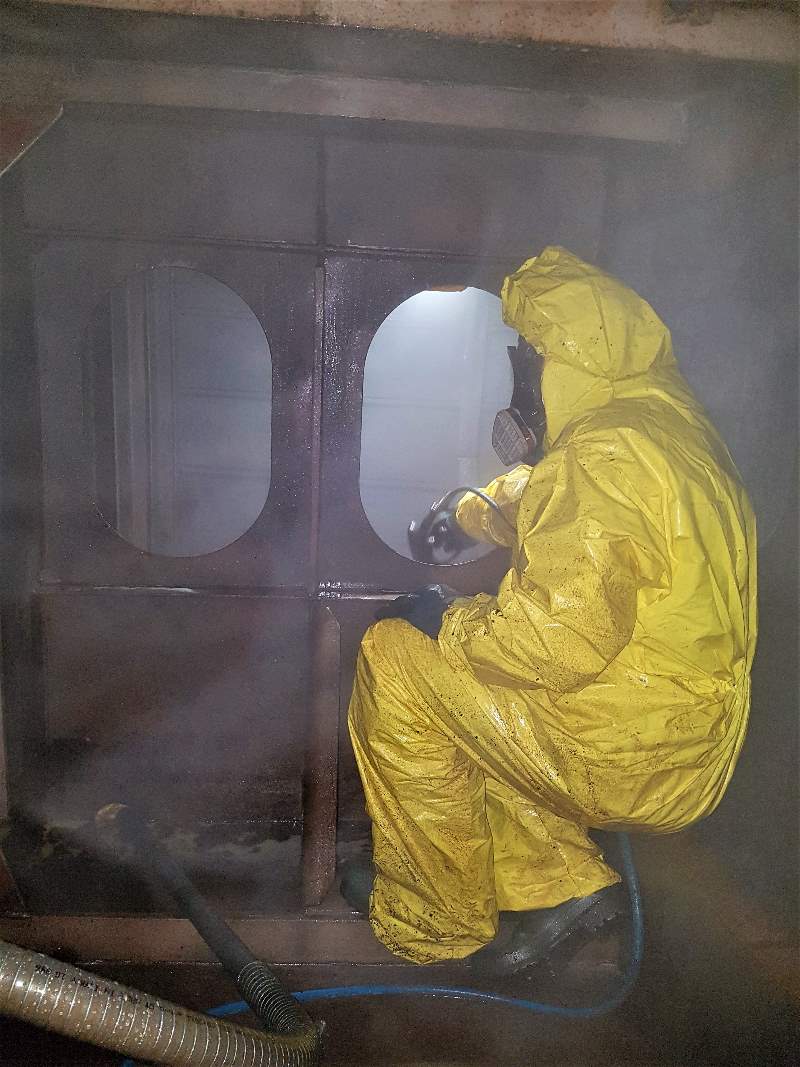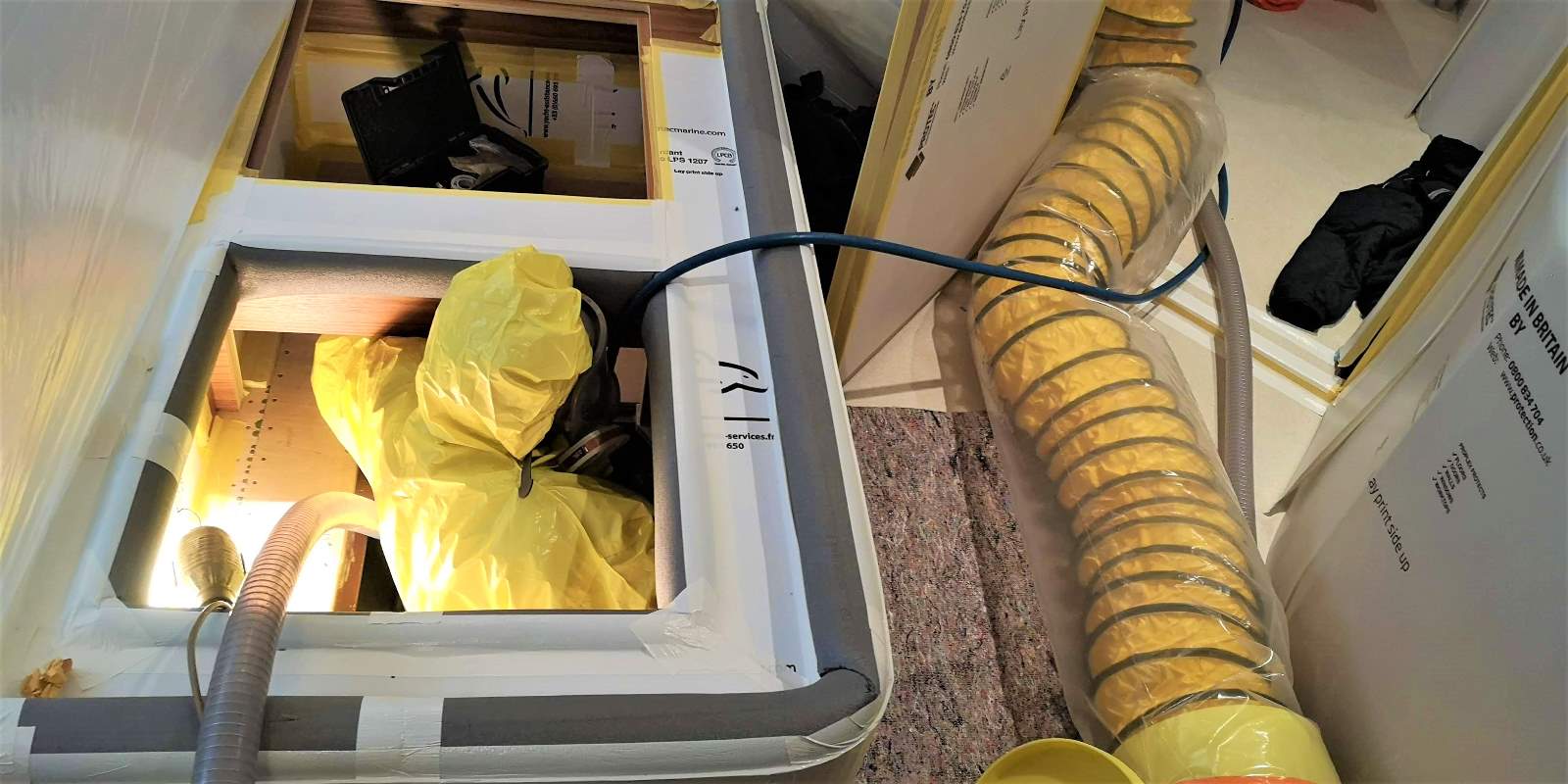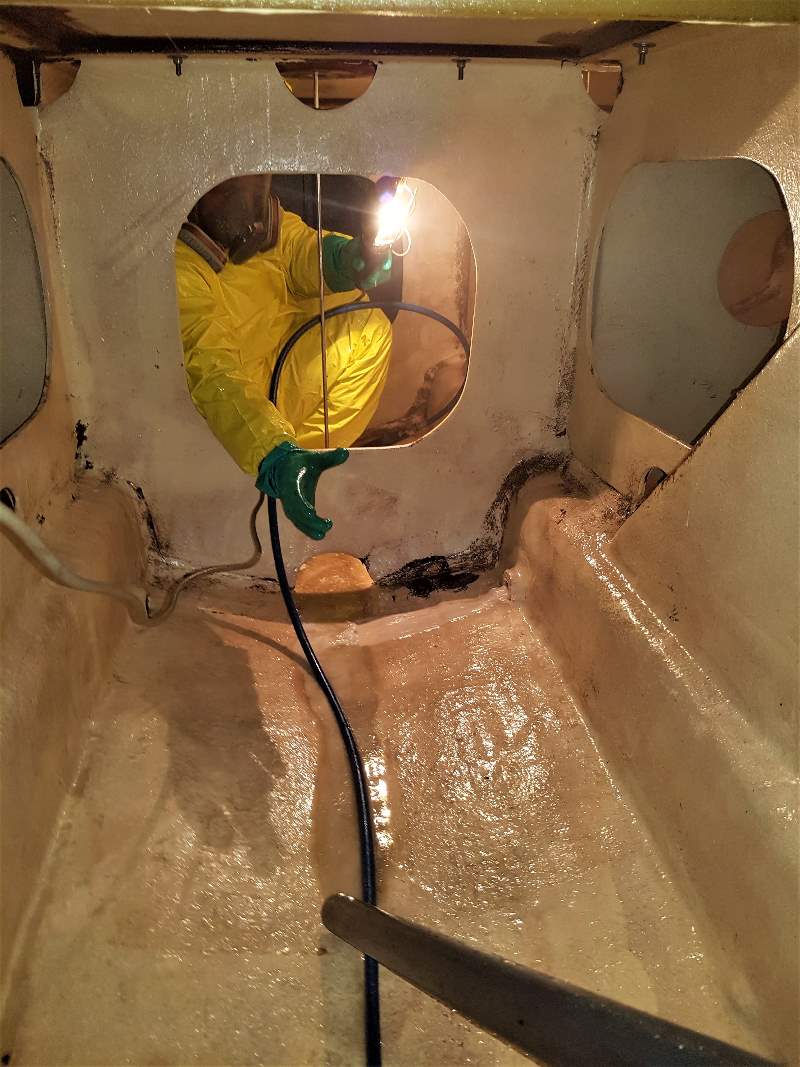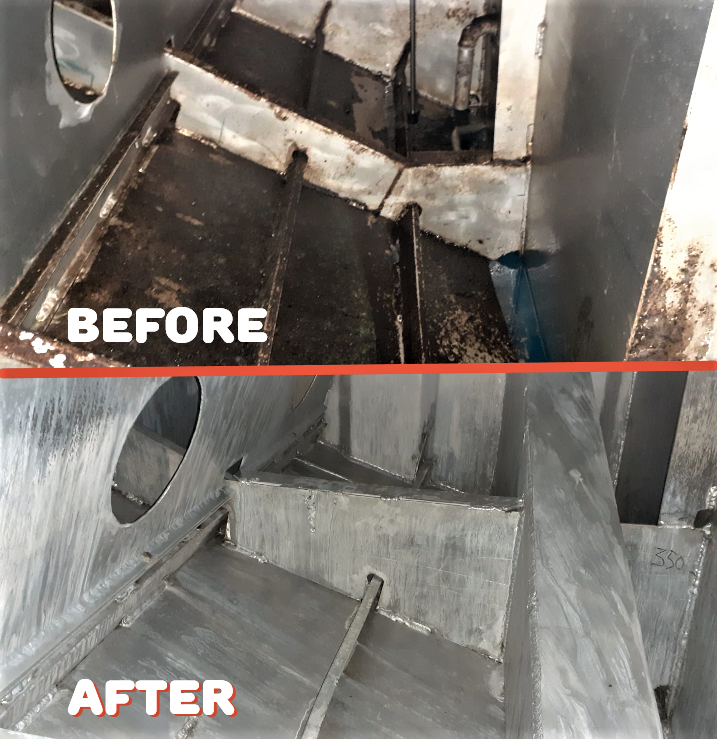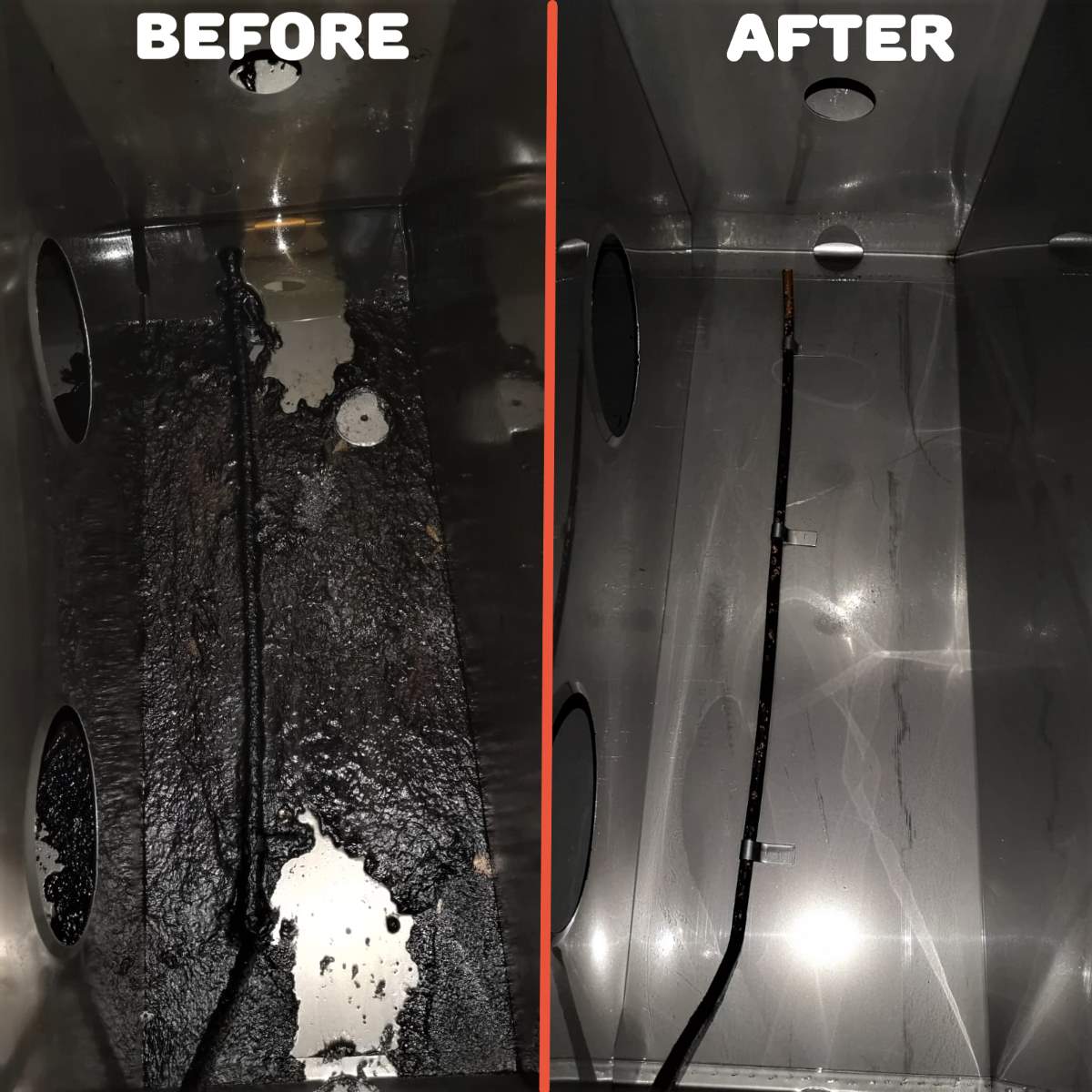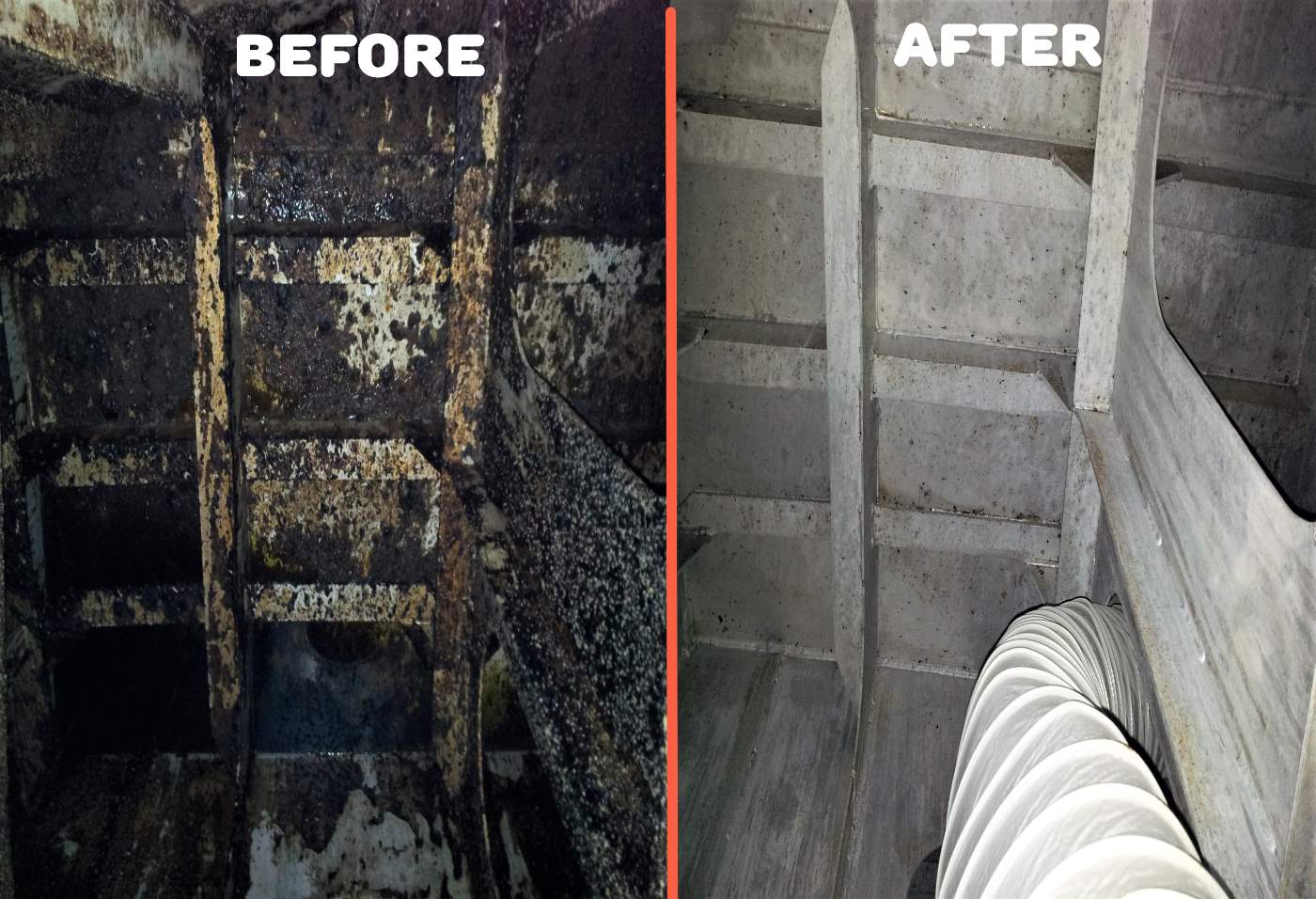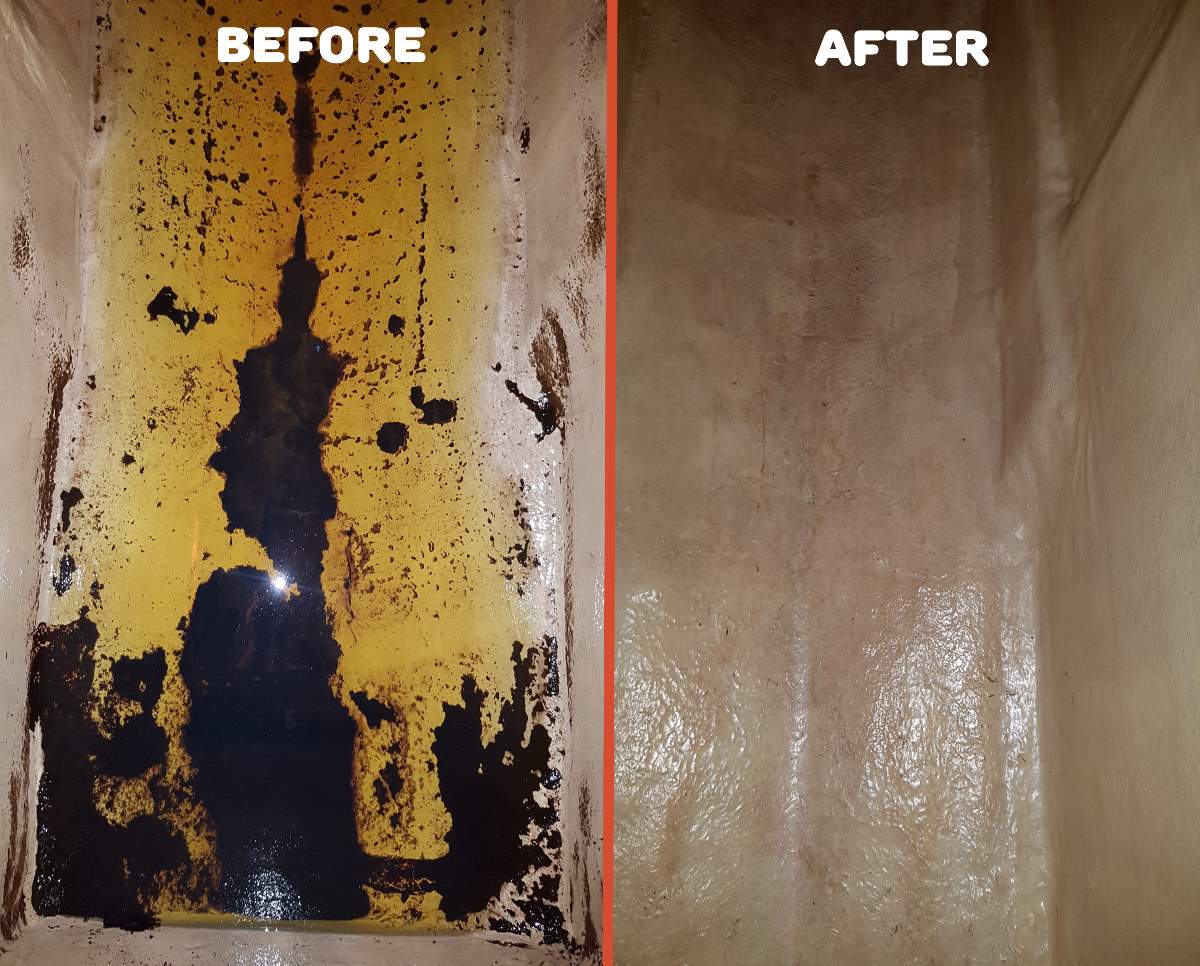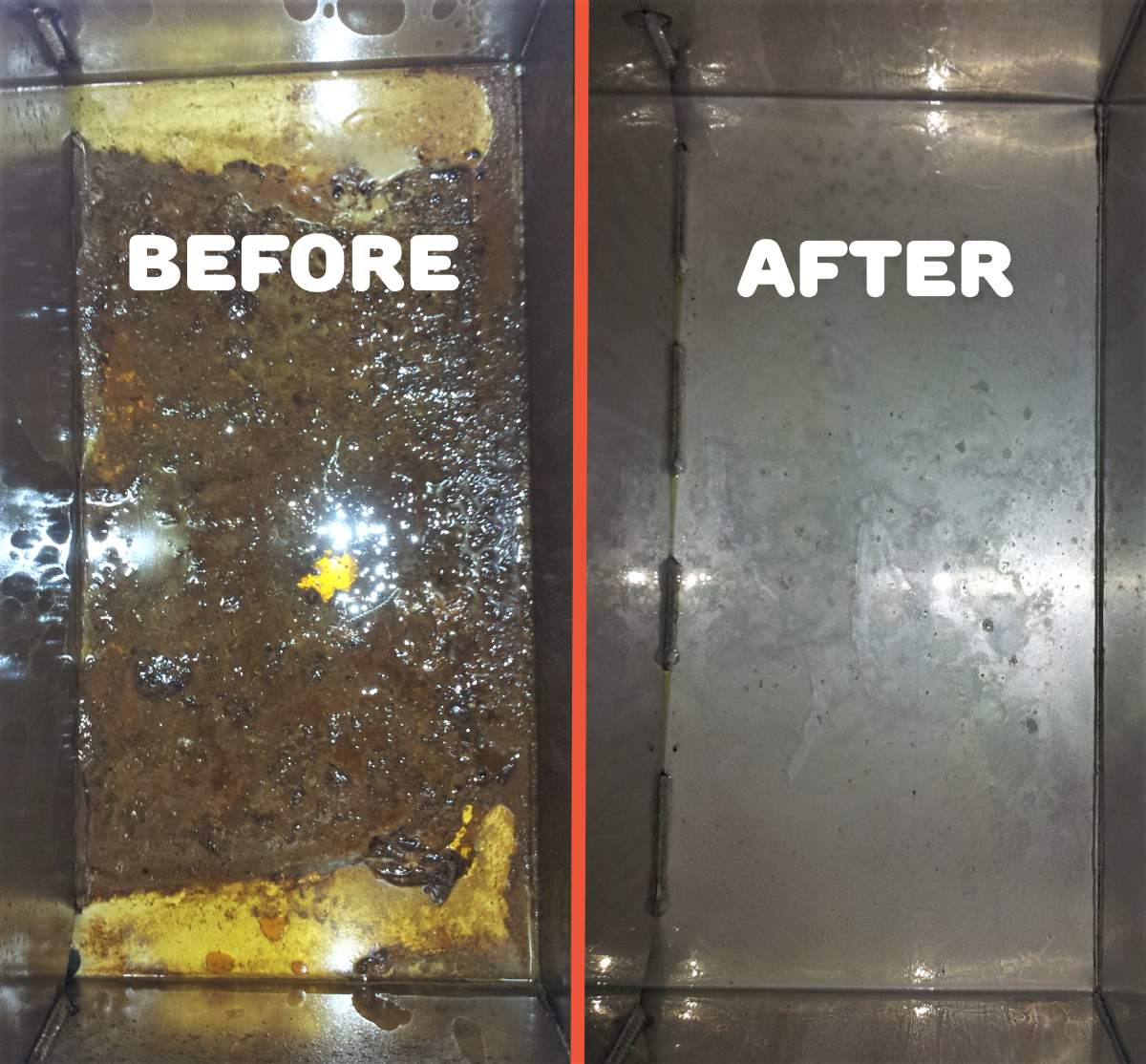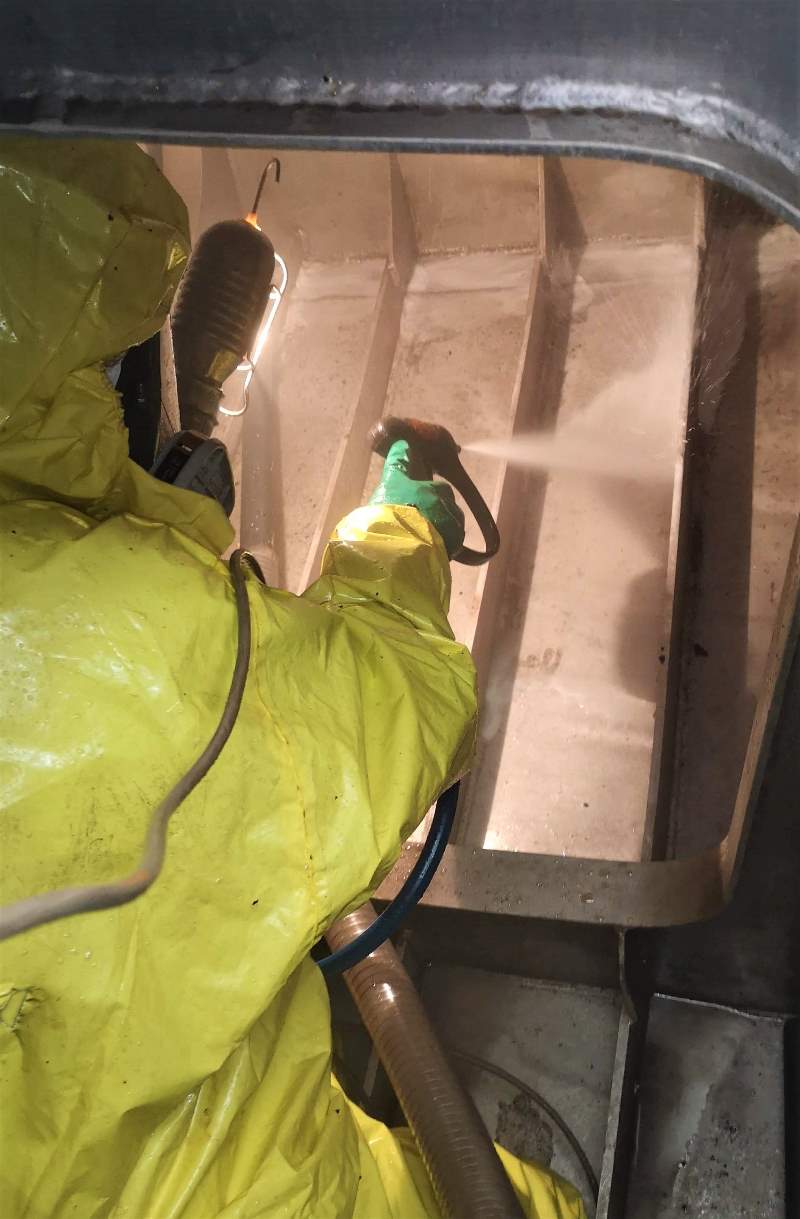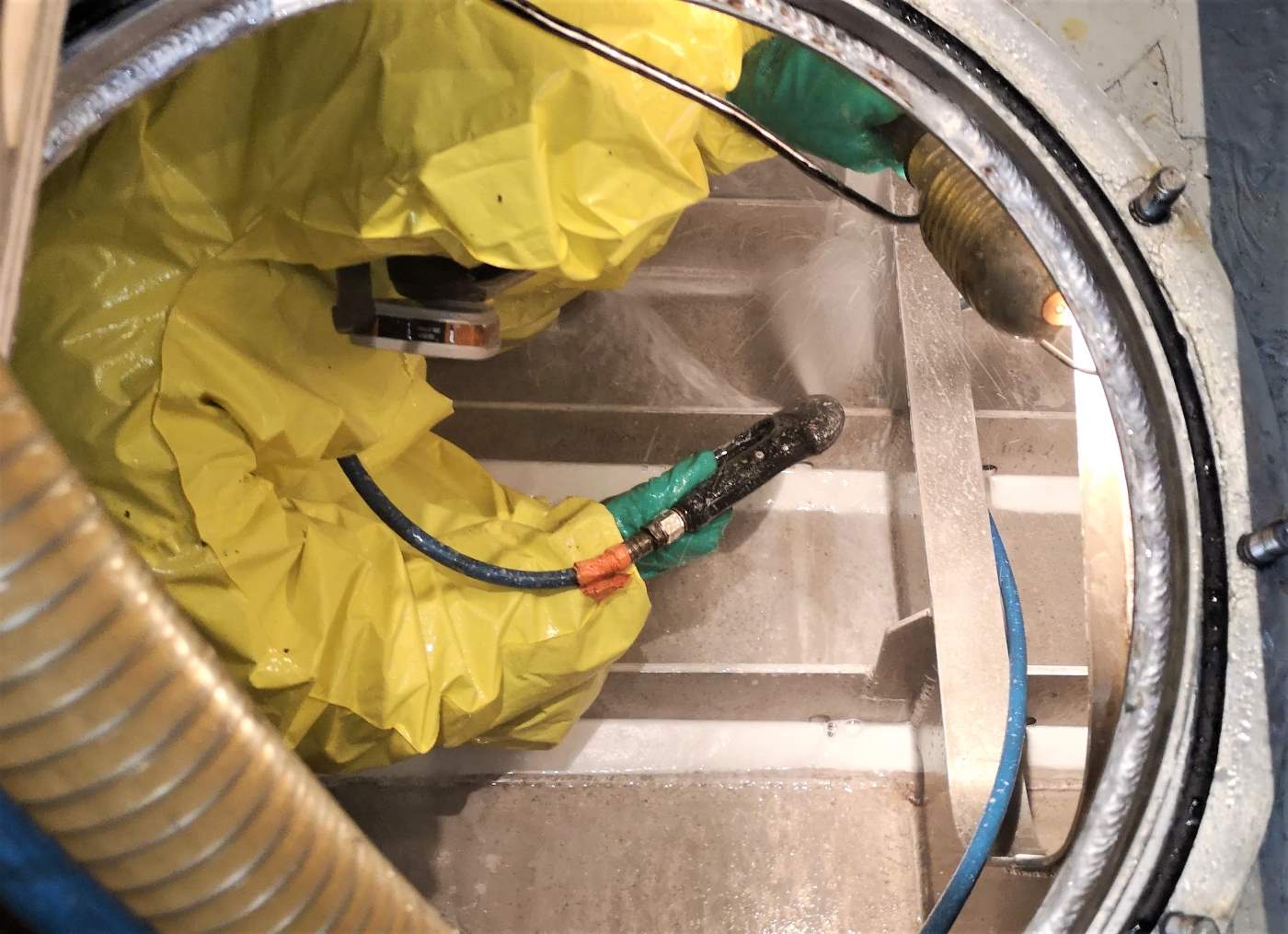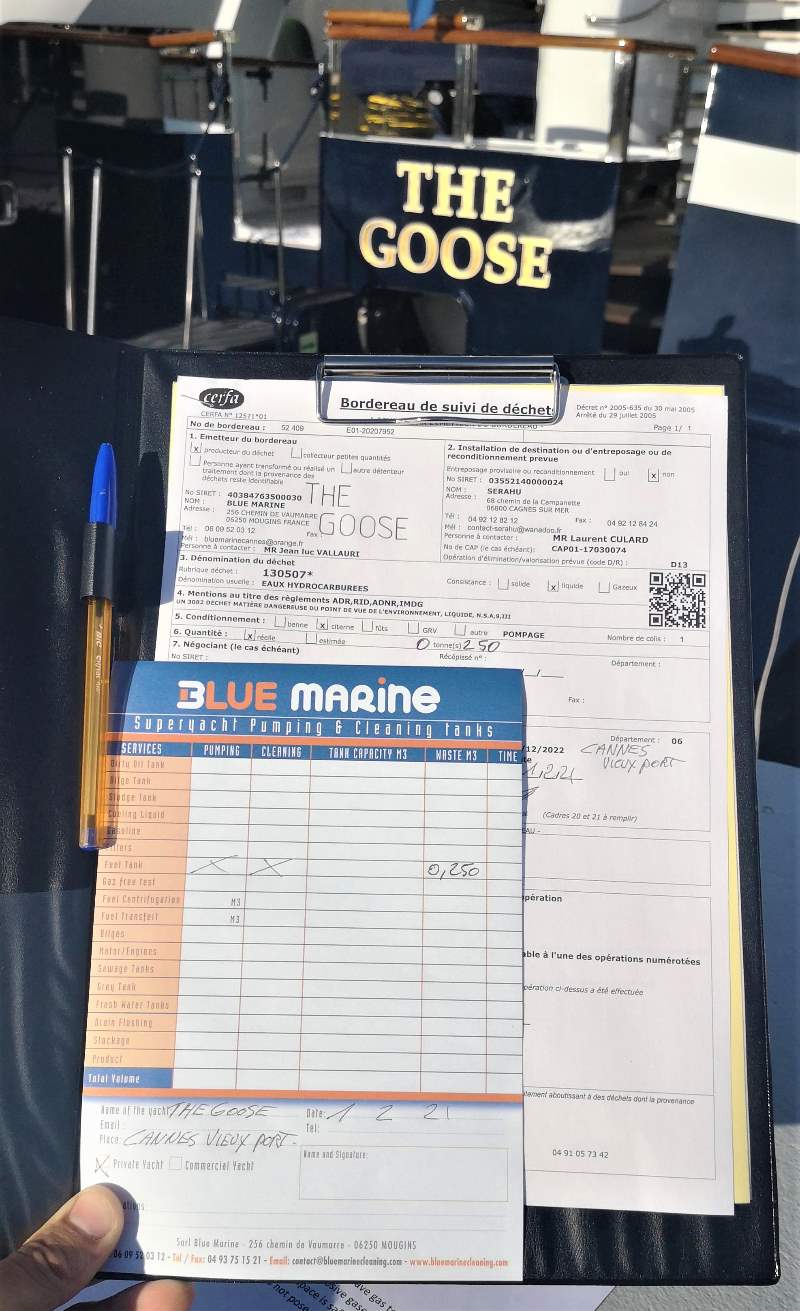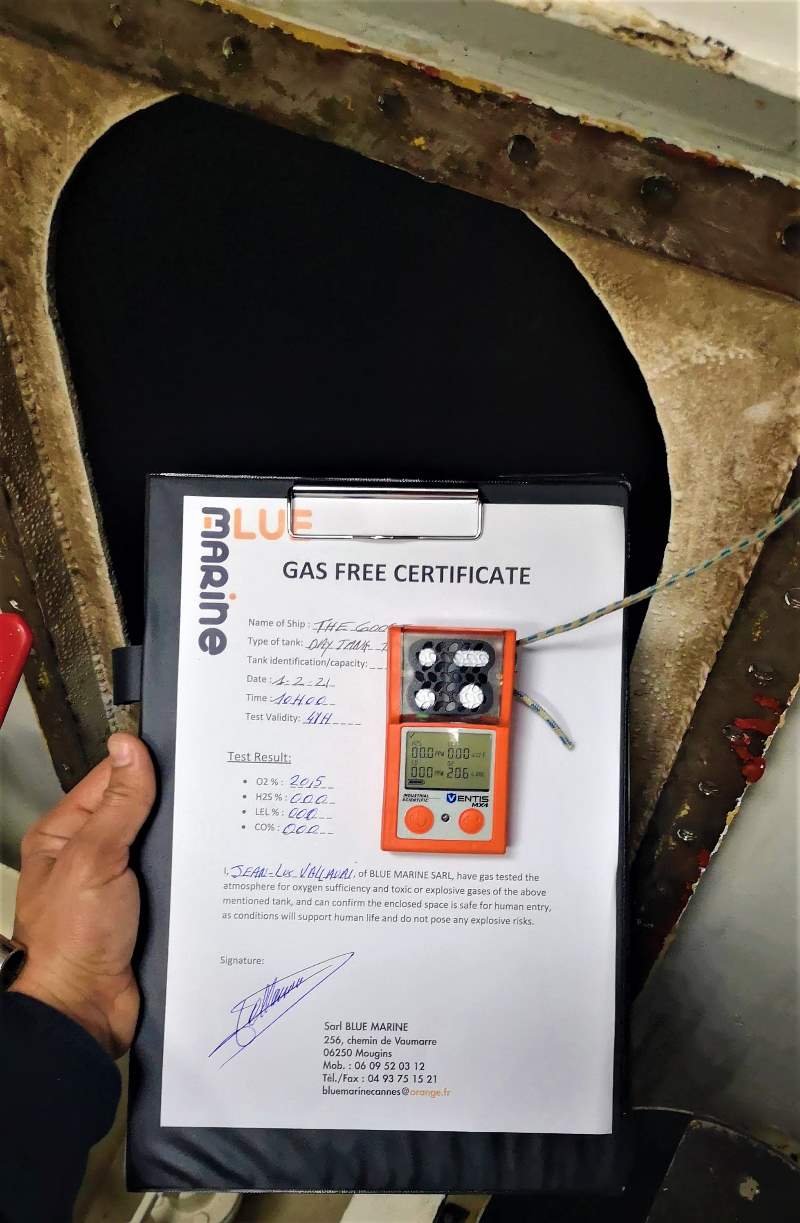Cleaning : Fuel tanks
Gas oil tanks are favourable to the development of microorganisms. Indeed, bacteria and fungi may develop and multiply, especially
when water is present. (Condensation phenomenon).
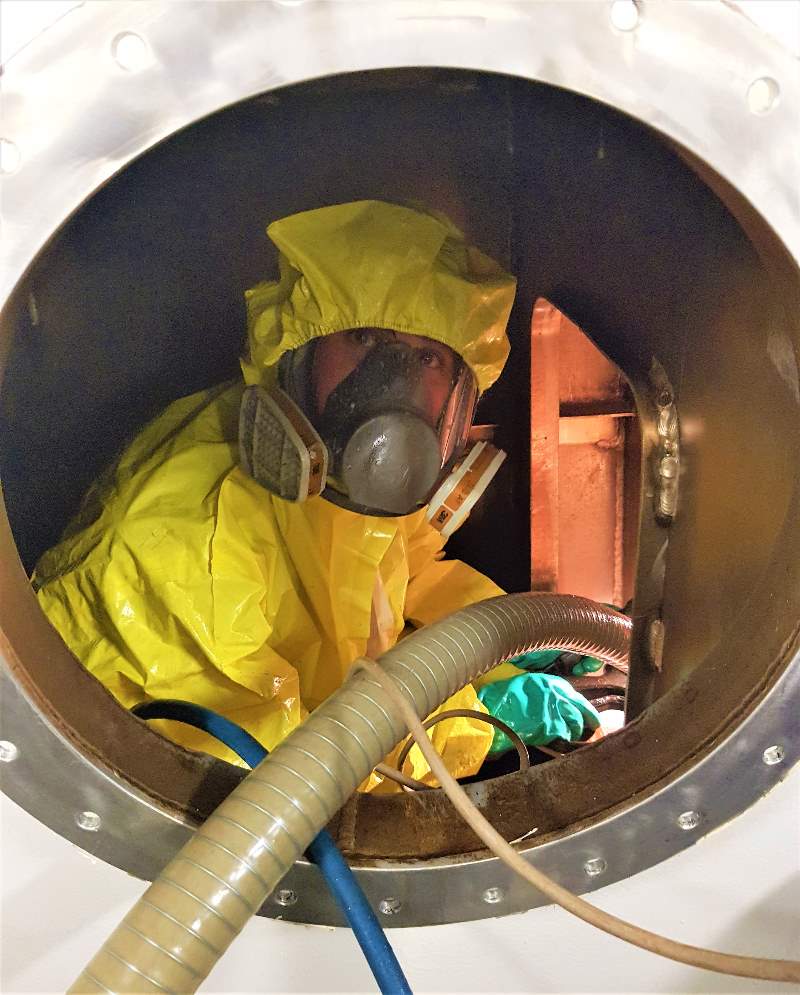
Fuel tank cleaning
With time, bacteria and fungi create impurities buildups at the bottom of the tank and lead to gelatinous sediments (sludge).
Sediment can be the source of many problems: frequent obstruction of the filters, deterioration of the booster pump, injectors…
That’s why gas oil tanks need special maintenance. A regular cleaning enables to avoid these problems and to check the condition
of the bottom of the tank (corrosion).
The cleaning of the gas oil tanks on boats requires a high level of training and skills.
To do so, our technicians are properly trained and apply strict cleaning procedure and safety protocols.
Our procedure is based on high-pressure cleaning by using industrial degreaser, drying of the tank, and fuel return by filtration.
We use high-tech equipment, in compliance with the regulation, gas detector (gas free test), ATEX gear (explosive
environment), breathing devices, dry suits, 24V lamps, etc.
The waste from cleaning is collected and transported to an authorised treatment centre. A waste tracking slip (WTS / BSD) is issued
so as to ensure its traceability.

We respect the traceability of waste

The traceability of the waste compels us to quite naturally carry out a strict follow-up from the collecting of the waste to its processing, in accordance with the applicable regulation. (Articles R 541-8 and R 541-12 and on in the Environment Code). Once the waste is collected, the Waste Tracking Slips (BSD / WTS) are issued for each type of waste, as well as a removal slip.
A copy is immediately handed over to the owner. This document will track the waste until its final destination, recovery or destruction / disposal.



